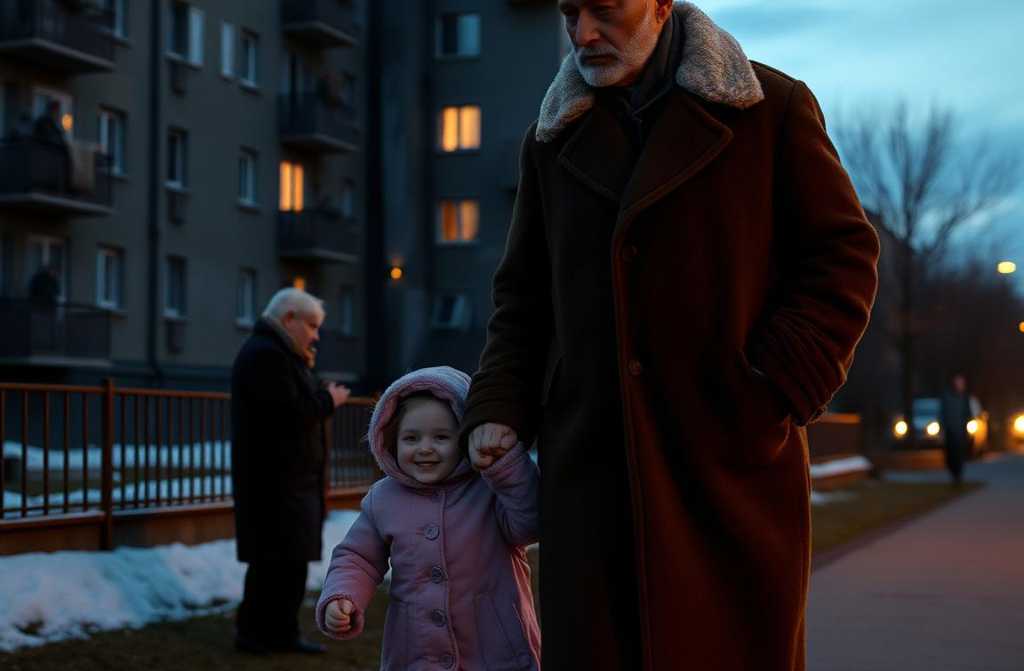Boris never wanted children.
The thought of fatherhood had never crossed his mind. All his life, hed dreamed of owning a doga big, shaggy onebut first his mother refused, then his wife objected. Now, standing there, Boris cradled a pink bundle in his arms, and from within it, a tiny face peered up at him with enormous blue eyes framed by long, dark lashes. Russell-Silver syndrome meant nothing to him. All he saw were those wide eyes, fringed with lashes like delicate feathers. His daughters little ears stuck out slightly, and the sight twisted his heart with aching pity.
“She wont grow taller than four foot six. Shes a dwarf,” the midwife explained, her voice tense. “You can still sign the papers if you want to.” But Boris only held the bundle tighter, staring blankly. His wife wept, tugging at his sleeve, whispering frantic words. He didnt hear any of it. They named their daughter Emily.
Life settled into the exhausting rhythm of raising a child. His wifes milk never camethe birth had been too harsh, the diagnosis too crushing. Then, one day, she packed her things. “I cant bear to look at her,” she said, voice breaking. “Its unbearable. Theres never been anything like this in *my* family. This is *your* blood.”
Whenever she spoke like that, Boris shut down. He didnt hear his wife, his mother-in-law, or even his own father, who had only ever glanced into the crib once with thinly veiled disgust. Only his own mother looked at him with sorrow, shaking her head. Soon enough, his wife was gone.
Boris was left alone with Emily. He took a year of paternity leave, scraping together money for physiotherapists, swimming lessons, daily massages. Then he returned to workhis mother watched Emily during the day until exhaustion forced her to step back. A nanny came next, an elderly woman with a gentle heart who sometimes stayed late when Boris drove his cab at night.
By two, Emily spoke in full sentences, sang in a tiny, sweet voice, and counted her fingers perfectly. She swam like a fish, laughed loudly at cartoons. They carried on like this until her seventh birthday. School loomed ahead.
Fear gnawed at Boris. He enrolled her in self-defense classes, even tried knife-fightingbut they turned her away. “Eighteen and older,” they said. So, she went to a regular school, standing out only in height and fragility. For the first fortnight, Boris marched her to class himself, glaring at the other children before scooping her up, planting a loud kiss on her cheek, and announcing, “If anyone hurts Emily, Ill rip their ears off.” Then he left, heart heavy.
Emily thrived. She became the star of the school play, cast as Thumbelina.
Then, at last, Boris fulfilled his oldest dream. He bought a doga Hungarian Komondorfor a symbolic fifty quid from his boss, who was relocating to London. “Fates got a funny way with you, Boris,” his boss said, clapping him on the shoulder. “You get a dog like thiscant brush him, just separate the cords every day.”
Life changed again. Every evening, Boris and Emily walked their Komondor, Albert, in his specially made coat, then spent hours braiding his thick cords. Emily rode him like a tiny jockey, and Albert moved carefully, terrified of dislodging her. The trio became a spectacleBoris in his worn sheepskin coat, Albert, a massive white beast in green dogwear, and Emily, tiny in her long pink puffer jacket. Neighbors gathered at their windows just to watch.
Then, they left. But the neighbors still talk about themBoris, Emily, and Albert. Years later, someone found Emily on social media. She was in America noweducated, married, with healthy children of her own. And grey-haired Boris? He married a heavyset Jamaican woman. Because thats just how fate worked for him.
*Interesting*.







